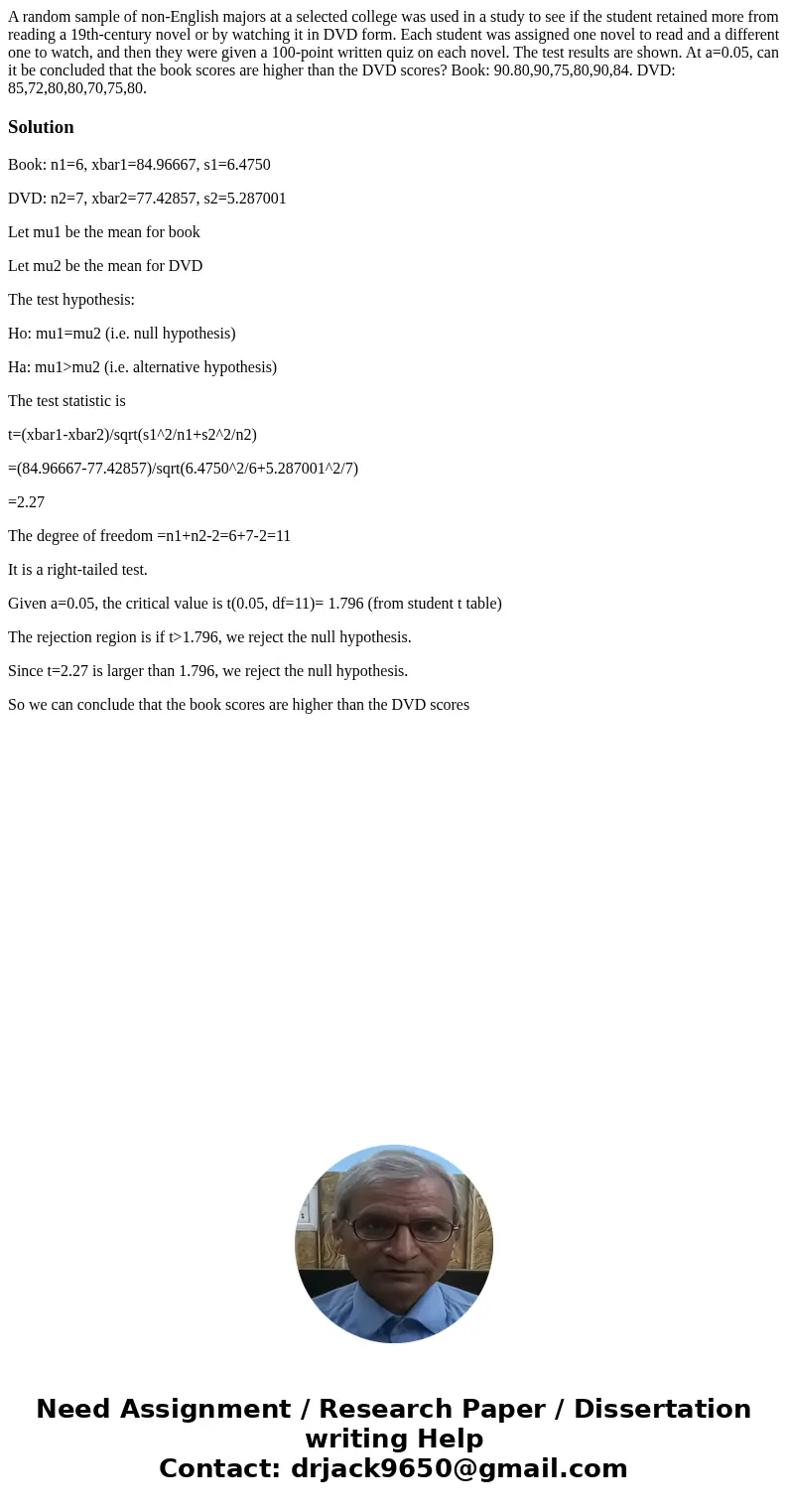A random sample of nonEnglish majors at a selected college w
A random sample of non-English majors at a selected college was used in a study to see if the student retained more from reading a 19th-century novel or by watching it in DVD form. Each student was assigned one novel to read and a different one to watch, and then they were given a 100-point written quiz on each novel. The test results are shown. At a=0.05, can it be concluded that the book scores are higher than the DVD scores? Book: 90.80,90,75,80,90,84. DVD: 85,72,80,80,70,75,80.
Solution
Book: n1=6, xbar1=84.96667, s1=6.4750
DVD: n2=7, xbar2=77.42857, s2=5.287001
Let mu1 be the mean for book
Let mu2 be the mean for DVD
The test hypothesis:
Ho: mu1=mu2 (i.e. null hypothesis)
Ha: mu1>mu2 (i.e. alternative hypothesis)
The test statistic is
t=(xbar1-xbar2)/sqrt(s1^2/n1+s2^2/n2)
=(84.96667-77.42857)/sqrt(6.4750^2/6+5.287001^2/7)
=2.27
The degree of freedom =n1+n2-2=6+7-2=11
It is a right-tailed test.
Given a=0.05, the critical value is t(0.05, df=11)= 1.796 (from student t table)
The rejection region is if t>1.796, we reject the null hypothesis.
Since t=2.27 is larger than 1.796, we reject the null hypothesis.
So we can conclude that the book scores are higher than the DVD scores

 Homework Sourse
Homework Sourse